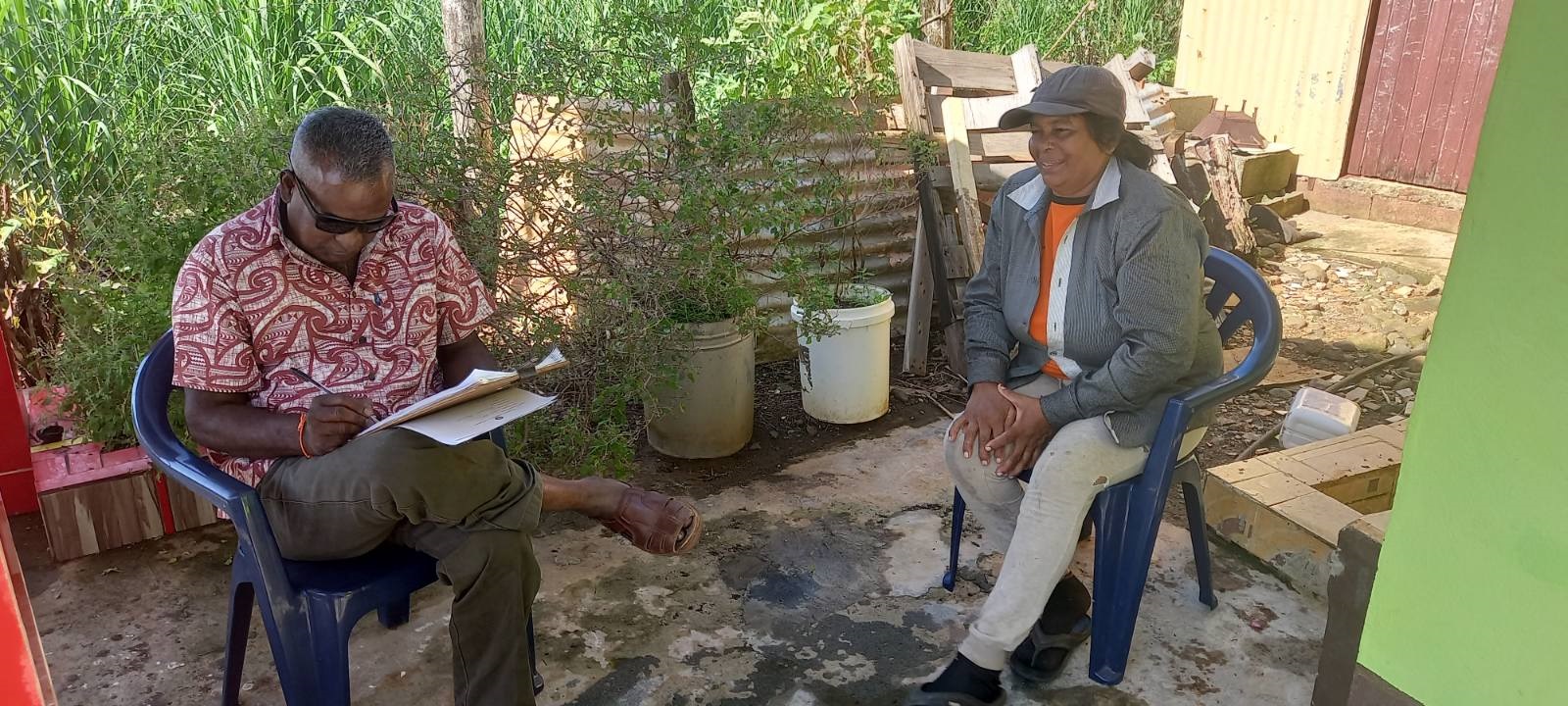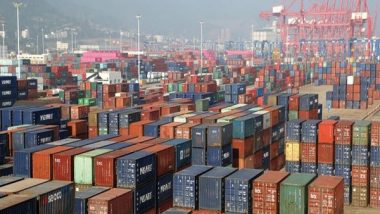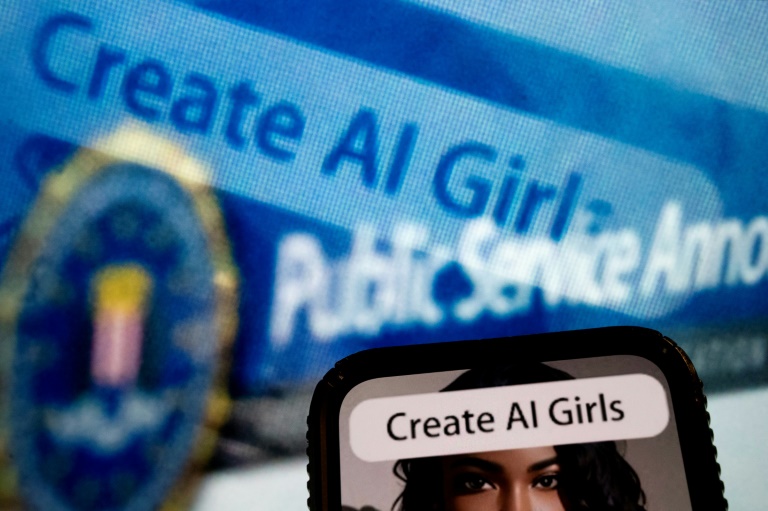phlboss customer service
Joe Rogan said that Democrats are “scrambling” to “create their own version” of his popular Spotify podcast following Donald Trump ’s win in the 2024 presidential election. The host of “ The Joe Rogan Experience ” had interviewed Trump in October but was unable to bring Vice President Kamala Harris on as a guest. “I think these ‘Call Her Daddy’ [podcast] shows and all these different shows that [Harris] went on, I mean, I’m sure they had an impact,” he told software engineer Marc Andreessen. “But I think that in the future, I’m sure they’re scrambling to try to create their own version of this show. This is one thing that keeps coming up, like, ‘We need our own Joe Rogan.’” “But they had me,” he added. “I was on their side.” Andreessen agreed with Rogan, replying, “The [Democrats] had you, and they drove you away. That’s No. 1. But they also have, you know, ABC, NBC, CBS, CNN. Right?” The martial arts commentator argued that traditional TV networks don’t have the same impact as podcast appearances in the current political climate. “But that doesn’t work anymore. It’s like, you know, like you’re using smoke signals, and everybody else has a cell phone,” Rogan said. “It’s just it’s a bizarre time.” Rogan, who endorsed President-elect Donald Trump on the eve of the election, previously endorsed Sen. Bernie Sanders (I-Vt.) during his 2020 presidential campaign. Rogan also showed support for independent candidate and vaccine skeptic Robert F. Kennedy Jr. for president in this year’s election, calling him the “ the only one that makes sense to me ” in August. He later clarified in a post on X , formerly Twitter, that he wasn’t endorsing Kennedy despite praising him. Over the summer, Rogan said he “could see” Harris triumphing over Trump in November’s election. “I’m saying it because she could,” Rogan said during a July 30 episode of his podcast, not long after President Joe Biden stepped back from his campaign. “I’m not saying it because I think she’s going to, and I’m not saying it because I want her to. I’m just being honest. I could see her winning.” On Tuesday, Harris’ campaign aides explained on “Pod Save America” why the vice president’s interview with Rogan fell through. “I hate to repeat this over and over, but it was a very short race with a limited number of days and for a candidate to leave the battleground and go to Houston, which is a day off the playing field in the battleground [states],” Stephanie Cutter said. “So, we had discussions with Joe Rogan’s team. They were great. They wanted us to come on. We wanted to come on. We tried to get a date to make it work, and ultimately we just weren’t able to find a date.” Cutter claimed that Rogan’s team “never confirmed” with them and Trump ended up taping with Rogan that same day, adding, “We kind of figured that out in the leadup to it.” Another Harris aide, David Plouffe, added: “We offered to do it in Austin. People should know that. Didn’t work out. I think maybe they leveraged that to get Trump in studio. And then we were obviously not going to be back in Texas but offered to do it on the road.” Other news outlets have retreated behind paywalls. At HuffPost, we believe journalism should be free for everyone. Would you help us provide essential information to our readers during this critical time? We can't do it without you. Can't afford to contribute? Support HuffPost by creating a free account and log in while you read. You've supported HuffPost before, and we'll be honest — we could use your help again . We view our mission to provide free, fair news as critically important in this crucial moment, and we can't do it without you. Whether you give once or many more times, we appreciate your contribution to keeping our journalism free for all. You've supported HuffPost before, and we'll be honest — we could use your help again . We view our mission to provide free, fair news as critically important in this crucial moment, and we can't do it without you. Whether you give just one more time or sign up again to contribute regularly, we appreciate you playing a part in keeping our journalism free for all. Already contributed? Log in to hide these messages. Elsewhere in the “Pod Save America” interview, Cutter reflected on whether appearing on Rogan’s show would have given Harris a leg up in the race considering she struggled to garner support from young voters in the election. “[The interview] would have broken through, not because of the conversation with Joe Rogan, but because of the fact that she was doing it — and that was really the benefit of it,” Cutter explained. “Will she do it in the future? Maybe. Who knows? But it didn’t ultimately impact the outcome one way or the other. But she was willing to do whatever it takes.” Related From Our PartnerZinke urges US Postal Service to keep Missoula processing center
US stocks rose Monday, with the Dow finishing at a fresh record as markets greeted Donald Trump's pick for treasury secretary, while oil prices retreated on hopes for a ceasefire between Israel and Hezbollah. The Dow climbed one percent to a second straight all-time closing high on news of the selection of hedge fund manager Scott Bessent to lead the critical economic policy position. Javascript is required for you to be able to read premium content. Please enable it in your browser settings.World News | PM Modi Recalled Historical Ties, Discussed Strengthening of Economic Relations with Kuwaiti PM: MEA
Reusable Lawn Waste Collection Bags Available to Southeast, USA Homes Online at Lowe’s Home Improvement Store Website
Mayor Ken Sim announced Thursday that abolition of the elected Vancouver park board and bringing parks and recreation under the control of city council will lead to $70 million in savings over the next decade. In what the mayor described as a streamlining of services, the transition is expected to achieve further savings once a new governance model is established, including millions of dollars in infrastructure project costs. “And these are conservative estimates,” Sim told reporters at city hall Thursday. A city staff report that goes before council Nov. 27 estimated savings of $1.5 million to $3 million per year alone on “position savings,” which staff at a technical briefing prior to the news conference said will see park board staff fill city vacancies. "Our goal is not to have any staff layoffs," said deputy city manager Sandra Singh, adding that staff continues to meet with unions representing park board workers. Savings of $1.8 million to $3.3 million per year were identified under a category called “early operational integration opportunities.” For example, staff who currently support the elected park board could move into the city clerk’s office. Arts and culture, communications and marketing and social policy were some of the other areas identified as amalgamating to avoid duplication of services. The report estimated, so far, that 10 to 20 positions could be affected by duplication. Abolishing the seven-member elected board would translate to a savings of $280,000 per year, or $2.8 million over 10 years, said the report, which gave no indication when the park commissioners would be phased out. The hurdle for Sim since he announced in December 2023 that he wanted to abolish the board has been getting the provincial government to make the necessary amendments to the Vancouver Charter. Premier David Eby initially committed to honouring the mayor’s request — which was supported by the seven councillors belonging to his ABC Vancouver party — but suggested during the recent election campaign that it wasn’t a priority. “It's very unlikely this would be a priority for the province before the next municipal election [in 2026], and they've got a lot of work ahead of them,” Eby told an audience at an all-candidates’ meeting Oct. 12 at St. James Community Square. Glacier Media contacted the provincial government Thursday for an update on Vancouver’s request. Municipal affairs now falls under Housing Minister Ravi Kahlon’s portfolio. “We have received the City of Vancouver’s transition report, and we are reviewing it," Kahlon said in an emailed statement. “We have been that clear our top priority will be to deliver on the priorities of British Columbians. That includes the costs of daily life, strengthening healthcare, and building safe communities in a strong economy.” Asked about Eby’s position, Sim said he wouldn’t comment on private conversations he has had with the premier but added that his office had “an incredible working relationship” with the premier’s office. Brennan Bastyovanszky, chair of the park board, was at city hall Thursday to hear what Sim and city staff told reporters about the transition. Bastyovanszky was a member of ABC Vancouver until Sim announced he wanted to abolish the board. He told reporters after the news conference that he didn’t believe the numbers staff provided regarding savings, calling them “dubious.” He also questioned how city councillors could add parks and recreation to their duties, when they already put in long hours. “The amount of workload that the councillors would take on equates to an extra two days of work a week, on top of a full-time job,” Bastyovanszky said. “I don't see how the council is going to be able to manage that. It's going to remove access to elected officials and decision-makers.” Added Bastyovanszky: “This is a centralization of power that does not benefit the people in Vancouver. It erodes the trust in democracy.” The mayor said the transition will allow the city to legally designate 89 acres of land as permanent parkland, including sections of Stanley Park. Sim said the land would be protected, accessible and sustainable for generations to come. Beyond saving money and securing more green space, the transition is about improving how the city gets things done, said Sim, who was joined on a podium by First Nations leaders, city councillors and members of the transition team. “Right now, we are seeing significant delays in critical projects that impact our city — sewer upgrades, green infrastructure, streets, public spaces — they're being delayed, in some cases, by up to two years,” he said, noting a recent pump station project saw costs increase by $2 million because of extended negotiations with the park board.
RIYADH: The Diriyah Co. signed a memorandum of understanding with the Saudi Federation for Cybersecurity, Programming, and Drones, known as SAFCSP, on Sunday to strengthen the digital security of Diriyah city, the Saudi Press Agency reported. The partnership will enhance cybersecurity measures and safeguard the city’s digital infrastructure as it continues to evolve into a modern hub of culture and heritage, SPA added. Under the agreement, Diriyah Co. will join BugBounty, the Middle East’s first cybersecurity research platform. BugBounty uses the expertise of cybersecurity specialists to identify and address software vulnerabilities, which will allow Diriyah Co. and SAFCSP to implement strategies to mitigate potential digital threats. To further support this, SAFCSP will provide specialized training programs to Diriyah Co. employees, equipping them with cybersecurity skills and raising awareness about the importance of digital security. The MoU will grant the company access to SAFCSP’s database of professionals, facilitating the recruitment of cybersecurity talent. The partnership also enables the design of tailored assessments to evaluate candidates’ suitability for cybersecurity roles. In addition, outstanding students with relevant certifications will be identified for potential training opportunities. Speaking about the collaboration, Jerry Inzerillo, group CEO of Diriyah Co., said: “This MoU aligns with Diriyah’s commitment to realizing Saudi Vision 2030, marking a crucial step toward creating a secure and sustainable digital future for Diriyah. Our collaboration with government and private sectors, especially the Saudi Federation for Cybersecurity, Programming, and Drones, is essential for empowering the next generation in advanced technology, driving cultural and economic growth.” The partnership will also involve joint cybersecurity projects, including conferences, workshops, and public awareness initiatives aimed at fostering a culture of digital security.Race to build stealthiest submarine: AUKUS’ secret plan could terrify China’s naval power
Inside N.J.’s Mosaic: SZA’s new songs and tour dates, Sophia DeTorres tribute, and comfort food delightsCPI(M) demands immediate withdrawal of election rule amendment PTI Updated: December 22nd, 2024, 20:49 IST in Home News , National 0 Share on Facebook Share on Twitter Share on WhatsApp Share on Linkedin New Delhi: The CPI(M) Sunday demanded the immediate withdrawal of an election rule amendment preventing public inspection of certain electronic documents such as CCTV camera and webcasting footage. In a statement, the CPI(M) Politburo expressed its strong objection to the amendment, restricting the access of political parties and candidates to electronic records, including video and other digital trails. Also Read PM Modi receives Kuwait’s highest honour 5 hours ago India boycott press match with Australia amid Jadeja press conference row: Report 7 hours ago The government tweaked the election rule to prevent public inspection of certain electronic documents such as CCTV camera and webcasting footage as well as video recordings of candidates to check their misuse. Based on the recommendation of the Election Commission (EC), the Union Law ministry Friday amended Rule 93(2)(a) of the Conduct of Election Rules, 1961, to restrict the type of “papers” or documents open to public inspection. The CPI(M) said these steps were initially introduced by the EC in consultation with political parties to ensure greater transparency, and described as “retrograde” the move to amend the rule. Proper consultations were not carried out with political parties on the issue, it alleged. “Media reports suggest that the government held consultations with the Election Commission of India while drafting the new rules. However, the Election Commission’s reported concurrence was not preceded by any consultation with political parties, contrary to the established precedents over the years,” the CPI(M) said. “The government’s argument, which questions the locus standi of the petitioner on the conduct of the electoral process, is specious. This approach completely excludes political parties’ involvement in the procedures to be followed,” the Left party said. The CPI(M) said its experience, particularly during the Lok Sabha elections in Tripura, showed that charges of rigging led to the examination of videographic records within polling booths, ultimately resulting in repolls being announced in almost half the polling booths across both constituencies. “In this era, where technology is an integral part of the electoral process, the government’s move represents a retrograde step,” it said. “The Politburo of the CPI(M), therefore, demands the immediate withdrawal of the proposed amendments to the Conduct of Election Rules,” it added. According to Rule 93, all “papers” related to elections shall be open to public inspection. The amendment inserts “as specified in these rules” after “papers”. Law ministry and EC officials separately explained that a court case was the “trigger” behind the amendment. Punjab and Haryana High Court, in the recent Mahmoud Pracha vs EC case, had directed sharing all documents related to the Haryana Assembly elections, including treating CCTV camera footage as permissible under Rule 93(2), with Pracha. While documents such as nomination forms, appointment of election agents, results and election account statements are mentioned in the Conduct of Election Rules, electronic documents such as CCTV camera footage, webcasting footage and video recording of candidates during the Model Code of Conduct period are not covered. An EC functionary said, “There have been instances where such electronic records have been sought, citing the rules. The amendment ensures that only papers mentioned in the rules are available for public inspection and any other document which has no reference in the rules is not allowed for public inspection.” EC functionaries said the misuse of CCTV camera footage from inside polling booths could compromise voter secrecy. They also said the footage could be used to generate fake narrative using AI. PTI Tags: CPIM ECI Election Share Tweet Send Share Suggest A Correction Enter your email to get our daily news in your inbox. Leave this field empty if you're human:
As the baton of wealth is inherited by younger generations, the heirs of wealthy families are taking a more active role in the impact they seek to create in the world by using the traditionally monolithic family office for more innovative, value-based investments. The great wealth transfer is in full swing as over $100 trillion is projected to be passed down from the older generations to their heirs through 2048 in the United States, according to a December report by research and consulting firm Cerulli Associates. > 24/7 San Diego news stream: Watch NBC 7 free wherever you are "There's a big intergenerational wealth transfer, but the preferences of the baby boomers are starkly different from the preferences of ... millennials," Nirbhay Handa, CEO of global migration platform Multipolitan, told CNBC Make It . "Now you have this younger generation which really believes that profit and progress should go hand in hand," Handa said. Millennials (ages 27 to 42) and Generation X (ages 43 to 58) stand to be the biggest beneficiaries of the wealth transfer, and are expected to inherit about $85 trillion between 2024 to 2048, according to the report. Generation Z and younger generations (ages 27 and younger) are expected to inherit over $15 trillion. Money Report Stock futures inch higher as the market heads into holiday-shortened week: Live updates Amtrak temporarily suspends Northeast Corridor service days before holiday Notably, the majority of wealth transfer will come from high-net-worth (HNW) and ultra-high-net-worth (UNHW) families, who together make up around 2% of all households, according to the report. These families are expected to contribute to over 50% of the transfers, or about $62 trillion. Compared to the baby boomers and older generations, "[younger generations] are less motivated by money, if I generalize, and much more [motivated by] contributing to society," said Martin Roll, an INSEAD Distinguished Fellow and family business and family office expert for McKinsey and Company. "They look out the front window [and ask]: 'What's ahead here? What are the big questions of our time?'" Gen X and millennials are concerned with societal impact — topics like climate change, diversity, health and wellness and hedging against geopolitical conflict are top of mind, said Handa. "I think sustainability and the whole ESG narrative is extremely robust [among younger generations]," the Multipolitan CEO added. "So they may not be interested in investing in fossil fuels or oil and gas, but they're very interested in investing in a company like Oatly ... or Beyond Meat," said Handa. This shift in investing attitudes by younger generations came out of necessity, said Handa. "People are seeing wars, [they're] seeing the impact of climate change... there's a lack of drinking water in many parts of the world," he explained. "As a result of that, this generation has become more resolute on focusing on things which are aligned with their personal values." "The challenges are real ... yes, we talked about cliamate in the 60s and 70s, you'll find them in the American newspapers then, but it was just a little more abstract. Now, it's real. Storms are coming, flooding is happening, hurricanes are more often... it's proof [and] they see it," said Roll. Another major shift can be seen in how some family offices are run. "The whole idea of family offices is less rigid than it used to be... Family Offices have become centers of innovation," said Handa. Having grown up in the age of digitization, the younger generations of wealthy families are investing more into technology and startups. They seek to discover and invest in technologies that can be a "lever for impact," said Roll. "For example, investing in climate tech, edtech, food treatment, water treatment, natural resources, renewable energy." In addition, younger generations are more active in how they invest through their family offices. "30 years ago, family offices were primarily the equity stakes from the company that the family owns through the family office, and would be tied up in real estate, some broader public equities and [overall, it would be a] passive portfolio," said Roll. Today, however, family offices are increasingly making direct investments into private companies, which is not traditional, Roll added. "The parents used to be what I call monolithic — they ran one business, but the younger people coming in may not be interested in chemicals, which is the main business, therefore they start to diversify [through] the family office," said Roll. Although it is true that wealth has always changed hands, the significance of the Great Wealth Transfer of our generation can be explained by looking back at the third wave of the industrial revolution. "It was really that industrialization of particularly, the Western world, that took place in the 50s and 60s, ultimately, with the rise of America after World War Two, and Europe — a lot of wealth was created," said Roll. Out of this post-war "boom," there were about 40 years of "outstanding economic activity," which led to the creation of new industries, big businesses and ultimately, the rise of the middle class in the U.S. and Europe, said Roll. "Therefore, jobs were created ... Everyone got a car, people got a house ... so you got a lot of major shifts that enabled that kind of wealth creation," Roll told CNBC Make It. It was this senior generation that really built "the world and the wealth after World War Two," and "that wealth, including business stakes, is now getting passed on to Gen X, but also to, of course, younger people," said Roll. Overall, as trillions of dollars change hands, what does this mean for the world? "This massive shift in money means the way things were done in the past is not necessarily how things will be done in the future," said Handa. "This era is about vitality and vibrancy and engagement. It's about democratization, it's about aspiration, it's about accessibility," Handa said. "Investment preferences are changing and legacy institutions need to adapt to the new world." Ultimately, as the younger generations inherit the wealth, Roll said: "I think you will see the money [doing] good work. It will be reinvested in the economy ... in technology, and I think in some of the big challenges of our time: climate, gender issues, minorities, villages, poor people and basic [education]." Want to make extra money outside of your day job? Sign up for CNBC's online course How to Earn Passive Income Online to learn about common passive income streams, tips to get started and real-life success stories. Plus, sign up for CNBC Make It's newsletter to get tips and tricks for success at work, with money and in life. Also on CNBC How to prioritize who to tip during the holidays, according to etiquette experts I spent $34,563.38 to travel the world for 18 months: My budget breakdown I’m a CFP—here are the top 4 tips I give my friends on how to avoid overspending2024’s most costly climate disasters killed 2,000 people and caused $229bn in damages, data shows
Blackout risk as severe heatwave sends mercury rising in eastern NSW
This month, the US Bureau of Industry and Security revealed a new package of strategic export controls on 140 Chinese companies, driven by a fear that the Chinese army could use artificial intelligence (AI) in automated identification and targeting of human subjects. The regulatory measures and export controls apply to high-bandwidth AI memory chips, software for chip design and development, as well as equipment used in semiconductor manufacturing. Specifically, this move from the Biden-Harris administration aims to deter China from developing state-of-the-art AI weapons, similar to those recently utilised by Ukraine and Israel. In response, Beijing has announced a ban on exporting rare earth metals and other high-tech materials such as gallium, germanium, and antimony, crucial for US military projects, including the production of F-35s. Gallium is the key element used in high-performance memory chips that Washington was trying to prevent Chinese access to in the first place. It is estimated that the unavailability of gallium and germanium alone could disrupt US supply chains by as much as $3 billion. Interestingly, China's customs data reveals that no gallium or germanium shipments were exported to the US this year, even before the ban's formal announcement. Historically, China, with more than 90% of global production, has a monopoly in the supply of rare earth metals and has used its dominance as a geostrategic weapon in trade wars. But since Beijing imposed quotas on the US in 2009 regarding rare earths, Washington has formed a "Minerals Security Partnership" with more than a dozen countries, including Australia, Japan, and the EU. Though the US has sufficient deposits of rare earths, it has not been mining them due to earlier environmental concerns. Now, due to the strategic importance of rare earth minerals, Washington has resumed domestic production in Alaska, Montana, Nevada, and Minnesota. The US Department of Defence, inspired by Japan's method of extracting gallium from scrap materials, has started recycling programmes to recover germanium from obsolete night vision modules and glass panes of tanks. In August 2024, the Biden administration modified the Foreign Direct Product Rule to stop exports of semiconductor manufacturing equipment from foreign countries to Chinese fabs. The Foreign Direct Product Rule states that if a chip is made using American technology, the US government can stop it from being sold, including other products made using that chip in a foreign country. This policy coerced countries like Singapore and Taiwan into not supplying to Chinese manufacturers. Last year, the US also signed separate deals with Japan and the Netherlands to restrict semiconductor manufacturing technology to China and to ensure that its imposed export control mechanisms work in tandem with those of its partners. This is important as the 140 companies banned this month also included Chinese-owned businesses based in Japan, South Korea, and Singapore. On similar lines to the US's Foreign Direct Product Rule, this time Beijing extended its ban on exporting Chinese rare earths to the US by making it applicable to all countries, corporations, and individuals. Earlier, China required exporters to apply for licences to send materials such as gallium and germanium to the US. China has also started to double down on various US companies and has initiated antitrust probes into chipmaker Nvidia on account of violations of Chinese antitrust laws, as well as other irregularities in the acquisition of Israeli companies. Nvidia has been releasing modified versions for the Chinese market in compliance with US export control sanctions of 2022 and 2023. This "weaponisation" of trade and a lack of intervention from the WTO have had a wide impact on supply chains and allied industries, especially in the electric vehicle (EV) sector. Tightened controls on graphite exports by China have affected EV manufacturing schedules and costs. Meanwhile, the EV sector in China is seeing massive capacity expansion, but a 100% tariff levied by the US on Chinese EVs means that American consumers will miss out on the cheaper EV tide. An exception to the US-China trade wars is Beijing's unique relationship with Tesla. Tesla was the first foreign company to set up a factory in Shanghai without signing a joint venture with Chinese state-owned companies. Moreover, it received maximum incentives from Beijing, including cheap financing from Chinese state banks, a special 15% tax rate, and very reasonable lease terms for its factories. Amid the extensive trade wars between the two giants, Elon Musk is in a unique position where he can play a role in easing trade restrictions between the two countries. Tesla has demonstrated to the West and to the US a new investment model in China that doesn't involve explicit technology transfer – something that has been of grave concern for the US administration. It has shown that, amid the technological race over critical technologies, there is still room for collaboration on emerging technologies. However, as of now, rolling back trade restrictions to pre-2008 levels is by no means an easy feat, albeit not an impossible one. THE WRITER IS A CAMBRIDGE GRADUATE AND IS WORKING AS A STRATEGY CONSULTANT COMMENTS Comments are moderated and generally will be posted if they are on-topic and not abusive. For more information, please see ourTech entrepreneur Elon Musk caused uproar after backing Germany’s far-right party in a major newspaper ahead of key parliamentary elections in the Western European country, leading to the resignation of the paper’s opinion editor in protest. Germany is to vote in an early election on Feb 23 after Chancellor Olaf Scholz’s three-party governing coalition collapsed last month in a dispute over how to revitalize the country’s stagnant economy. Musk's guest opinion piece for Welt am Sonntag — a sister publication of POLITICO owned by the Axel Springer Group — published in German over the weekend, was the second time this month he supported the Alternative for Germany, or AfD. “The Alternative for Germany (AfD) is the last spark of hope for this country," Musk wrote in his translated commentary. He went on to say the far-right party “can lead the country into a future where economic prosperity, cultural integrity and technological innovation are not just wishes, but reality.” The Tesla Motors CEO also wrote that his investment in Germany gave him the right to comment on the country's condition. The AfD is polling strongly, but its candidate for the top job, Alice Weidel, has no realistic chance of becoming chancellor because other parties refuse to work with the far-right party. An ally of U.S. President-elect Donald Trump, the technology billionaire challenged in his opinion piece the party's public image. “The portrayal of the AfD as right-wing extremist is clearly false, considering that Alice Weidel, the party’s leader, has a same-sex partner from Sri Lanka! Does that sound like Hitler to you? Please!” Musk’s commentary has led to a debate in German media over the boundaries of free speech, with the paper's own opinion editor announcing her resignation, pointedly on Musk's social media platform, X. “I always enjoyed leading the opinion section of WELT and WAMS. Today an article by Elon Musk appeared in Welt am Sonntag. I handed in my resignation yesterday after it went to print," Eva Marie Kogel wrote. The newspaper was also attacked by politicians and other media for offering Musk, an outsider, a platform to express his views, in favor of the AfD. Candidate for chancellor, Friedrich Merz, of the Christian Democratic Union, said Sunday that Musk's comments were “intrusive and presumptuous”. He was speaking to the newspapers of the German Funke Media Group. Co-leader of the Social Democratic Party, Saskia Esken said that “Anyone who tries to influence our election from outside, who supports an anti-democratic, misanthropic party like the AfD, whether the influence is organized by the state from Russia or by the concentrated financial and media power of Elon Musk and his billionaire friends on the Springer board, must expect our tough resistance,” according to the ARD national public TV network. Musk's opinion piece in the Welt am Sonntag was accompanied by a critical article by the future editor-in-chief of the Welt group, Jan Philipp Burgard. “Musk’s diagnosis is correct, but his therapeutic approach, that only the AfD can save Germany, is fatally wrong,” Burgard wrote. Responding to a request for comment from the German Press Agency, dpa, the current editor-in-chief of the Welt group, Ulf Poschardt, and Burgard — who is due to take over on Jan. 1 — said in a joint statement that the discussion over Musk's piece was "very insightful. Democracy and journalism thrive on freedom of expression.” “This will continue to determine the compass of the “world” in the future. We will develop “Die Welt” even more decisively as a forum for such debates,” they wrote to dpa.Dell Technologies Inc. (DELL): Citi Lowers Price Target to $156 Amid Earnings Miss, Highlights AI and PC Recovery Potential
Kemi Badenoch ‘driving 6,000 to join Reform UK each day’





 7hol
7hol
/cdn.vox-cdn.com/uploads/chorus_asset/file/24957516/236811_WIFI7_CVirginia_1.jpg)

















 phlboss legit or not
phlboss legit or not





 phlboss online
phlboss online








